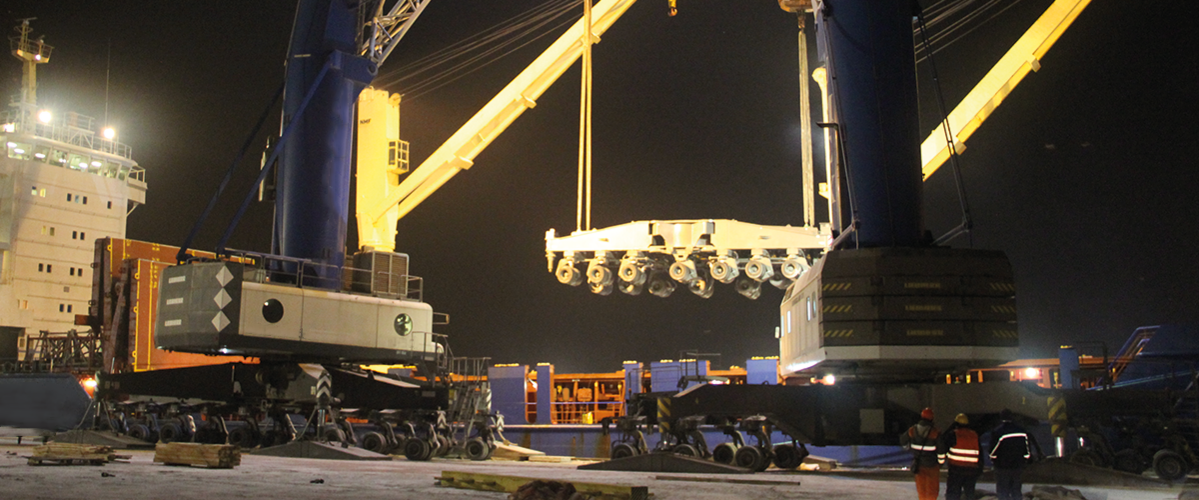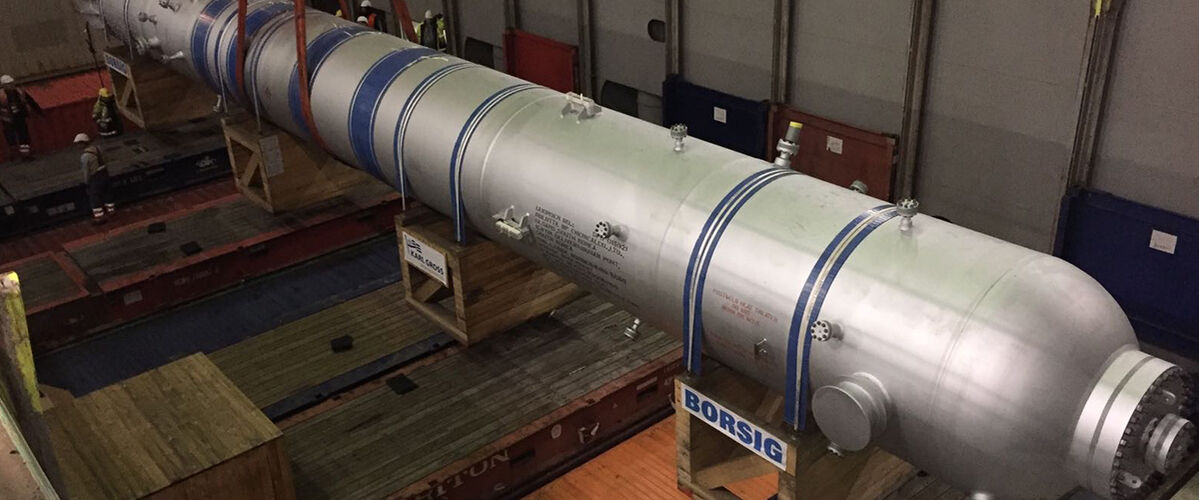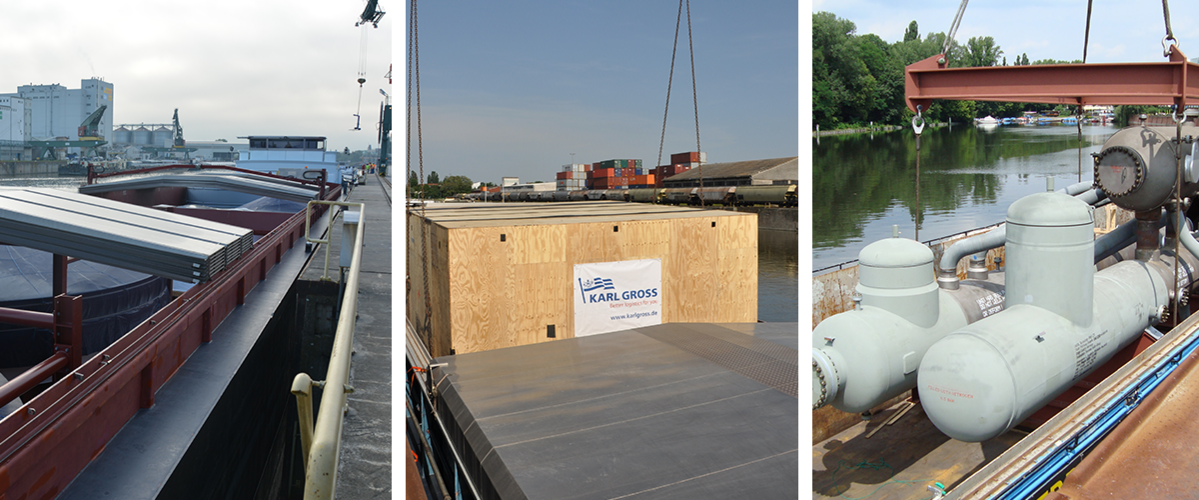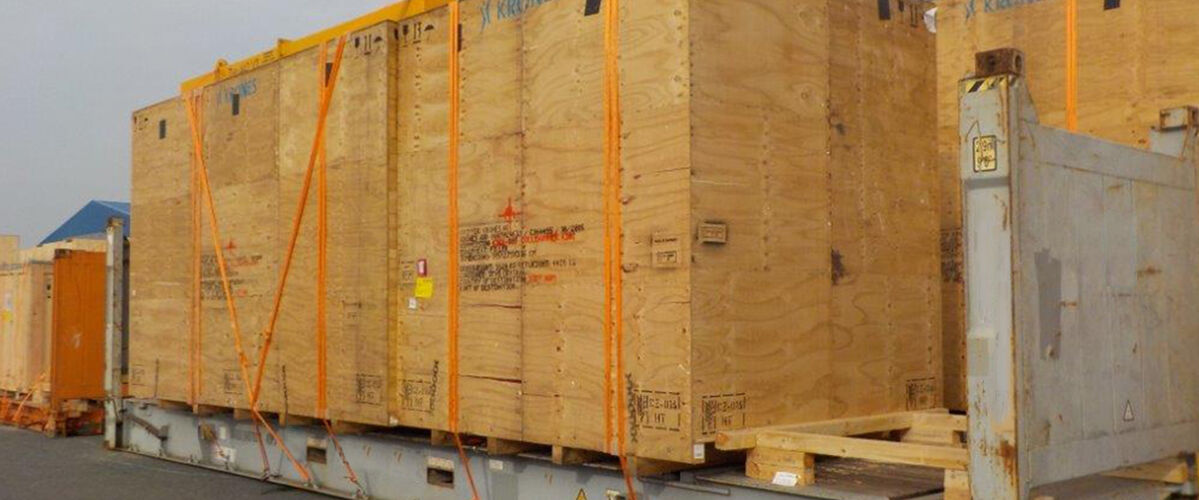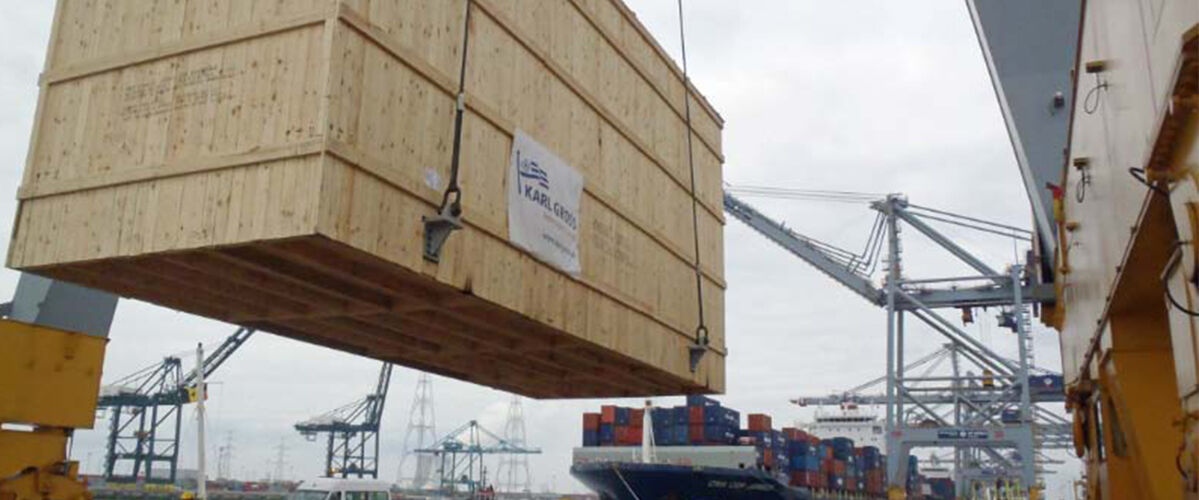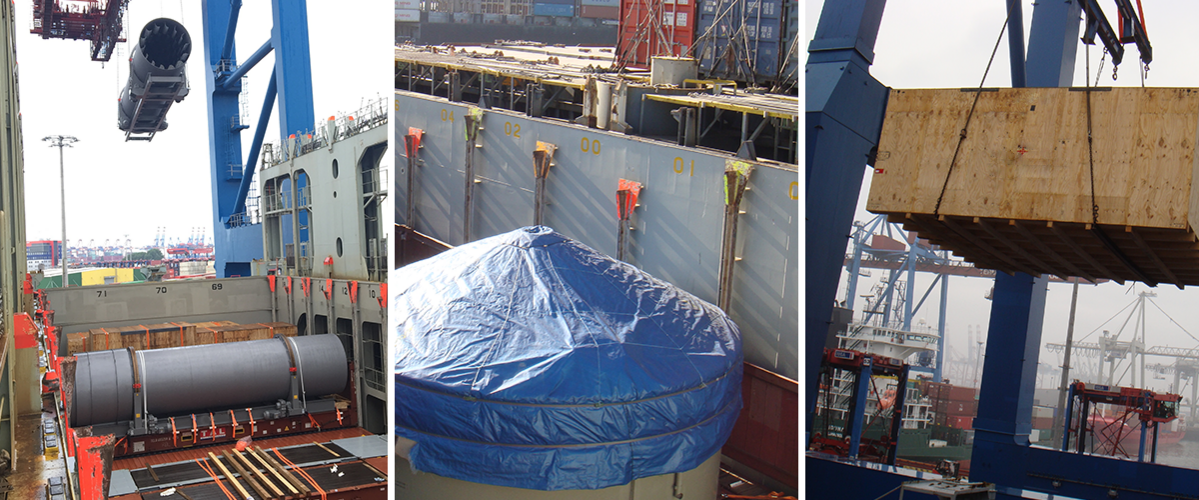350 tons weighs the loading crane manufactured by Sennebogen – a world renowned fabricator of excavators and cranes – that the Karl Gross specialists for project logistics had to transport from Southern Germany to the Western part of Turkey, specifically to Izmir. Jürgen Wittman of the Karl Gross Regensburg office, who was in charge of the transport, outlines decisive points for delivering the urgent cargo on time.
“Short transit times were most important to our customer Sennebogen”, says Jürgen Wittmann. “Due to the weight and size of the single crane components, the pre-carriage from the manufacturing premises in Straubing to the port of loading could only be conducted via inland waterway vessel – an option that is generally considered to be slower than road transport”, adds Jürgen Wittmann. In order to meet the tight time schedule of our customer, the project logistics specialists of Karl Gross came up with something special.
We used an inland waterway vessel on the Danube as far as Constanta.
“Instead of shipping the cargo via the port of Antwerp using a break bulk carrier in liner service, we worked out a way to cover a good part of the total transport route by inland waterway vessel”, Jürgen Wittmann says. “We used the river Danube all the way down to Constanta seaport in the East of Romania. There, we had arranged for transloading the cargo onto a charter vessel for further transport to Izmir.”
“For the cargo’s journey from the inland port of loading in Southern Germany to Constanta, we also had to make some special arrangements to stay on schedule”, Jürgen Wittmann explains. “An inland waterway vessel usually needs about two weeks to cover the distance to Constanta. A break bulk vessel then normally takes four to five days from Constanta to Izmir. That was too slow for our transit time requirements. Furthermore, we had to take into consideration that with normal transit times, the inland waterway vessel would have arrived in Constanta during a several days long public holiday. That would have made immediate transloading of the cargo impossible.”

We monitored the transloading on-site in Constanta.
Full control
During the cargo transport on the river Danube, the current position of the cargo was permanently tracked by GPS. And during transloading operations, Karl Gross also relied on monitoring activities. “The cargo required special handling”, Jürgen Wittmann explains. “Karl Gross team members were on-site in Constanta and monitored the whole operation.”
23rd of May 2018


